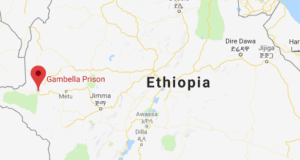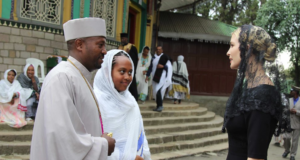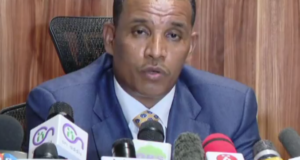 ESAT News (March 18, 2016)
ESAT News (March 18, 2016)
David Cameron has written to the Ethiopian prime minister twice to express concern over the continued detention of Andargachew Tsige, who is on death row, BuzzFeed News reported on Thursday. But a memo from the Foreign Office to Downing Street admits “no concrete progress” is being made to free Andy Tsige, despite the UK giving Ethiopia £350 million a year in aid.
British officials are frustrated that despite repeated representations, no progress has been made in the case of Andy Tsige, a father of three from north London, BuzzFeed quoted a memo from the Foreign Office to Downing Street as saying.
Tsige was detained at an airport in Yemen in June 2014 and taken to Ethiopia, where he had been sentenced to death in absentia on trumped up terrorism charges. He has not been formally charged is held incommunicado.
Campaigners say he has been captured because he leads a banned opposition group and exposed government corruption. Civil servants at the Foreign Office have expressed their skepticism over the charges in internal memos, according to BuzzFeed.
The Foreign Office memo, obtained by BuzzFeed News, was sent in July last year to Downing Street. It noted that the foreign secretary, Philip Hammond, was “deeply concerned” about Tsige’s continued detention in solitary confinement for more than a year.
“Our repeated requests for regularized consular access have not been granted, despite multiple assurances given to the foreign secretary by Ethiopian foreign minister Tedros Adhanom,” the memo stated.
It said Hammond recommended to Cameron that he follow up an earlier letter about Tsige to his Ethiopian counterpart with a second letter “to emphasize our disappointment and frustration at the lack of progress on this case, despite our otherwise successful partnership”.
The Foreign Office confirmed to BuzzFeed News this week that following the memo, Cameron did write the second letter.
In the memo the Foreign Office also said it had set out its “frustrations and concern” on “15 separate occasions” with the Ethiopian government, but there had been no “substantive progress”. At that point the British government went public with its views on the case, and officials are understood to have raised the case seven more times since, reports BuzzFeed.
 The Ethiopian Satellite Television and Radio (ESAT) No. 1 Ethiopian news media: Esat, Ethiopian news, daily Ethiopian news, ESAT tv, ESAT Radio, Ethiopia
The Ethiopian Satellite Television and Radio (ESAT) No. 1 Ethiopian news media: Esat, Ethiopian news, daily Ethiopian news, ESAT tv, ESAT Radio, Ethiopia





